These companies can assist businesses in finding talents they would not be able find by themselves. They have the ability to speed up processes and are able to access a larger pool of talent than businesses.
To stay competitive, your workforce has to continue learning. You should support this with methods like micro-credentialing or education paths that are nonlinear.
Improve Your Talent
The majority of companies focus on finding new talent to take over the less-than-performing ones, but upgrading your existing workforce is also very important. This can be done by establishing a mentoring program which will assist employees who are already in the company to develop their abilities, as well as progress within your company.
It is possible to fill any gaps in the technical field and also provide employees with the opportunity to advance. Promoting workers with the ability to think outside the box and have an open mind to learning can also help increase your talent pool.
In order to attract the best candidates to your company, it is essential to have an employer’s brand that is strong and an exceptional candidate experience. Your goals can be achieved with a system that can automate nurture campaigns. You should also invest a percentage of your capital saved by cutting expenses into certain recruitment and development programmes to ensure you remain competitive and culture.
Strategic Talent Acquisition
In contrast to recruitment, which tends to be focused on filling short-term jobs, talent acquisition follows a broader approach that includes long-term hiring goals. This process focuses on finding people who fit into the culture of the organization and can assist them in achieving the long-term goals.
The strategies for recruiting talent are employed to create teams of productive employees who are able to work together. It can also save money and improve organizational knowledge and experience. It also helps boost the morale of employees, by ensuring that they’re satisfied by their job.
The strategies for recruiting talent are employed by businesses to boost their competition and attract diverse candidates. Employers can offer attractive salaries and benefits plans, provide loyalty programs and advertise their company as a great place to work. Also, they can work with temporary workers, hire skilled immigrants and employ freelancers.
Skill Assessment and Development
Skills assessment helps HR professionals identify strengths and weaknesses. It also helps HR professionals to determine the areas of need for improvement that are essential to an organization’s growth and future achievement. It promotes positive workplace cultures and helps in the development of employees.
The assessments for skills are carried out either prior to hiring or in current workforces. They’re an excellent tool for assessing the quality of a company’s workforce and can help shortlist qualified applicants for positions. The tests could be in the form of programming, math or writing or even role-plays to simulate the real-world work environment.
Based on the findings of the tests, you are able to design training courses that are targeted at particular skills weaknesses. It is crucial to ensure that the company can satisfy the future demands of its customers and stay at the forefront of a rapidly changing business climate.
Career Counseling
Career counseling can be described as a type of support and guidance which helps people make informed decisions about their careers. The process of counseling for careers can involve identifying potential career options, planning job interviews, and creating resumes and cover letters. These can assist people in developing strategies for overcoming obstacles in their career.
Career counselors can help at various stages in life, for instance when college students decide what they want to study and when working adults are considering a change in their career. Different assessments may be used, including personality and aptitude tests to determine which job is the best fit for a person.
To keep up-to-date, careers counselors should be on the lookout for new information about the latest trends in their field. They may also need to adjust their approach as clients’ requirements can shift in time.
Market intelligence for recruitment
Effective recruitment requires a deep understanding of the job market, candidates and competitors. The ability to develop and implement recruiting strategies collaboration with other stakeholders is essential as well.
The recruiters speak to the high-quality candidates on a daily basis and discover what their goals for the future are and why they want to change their lives. Employers can use this knowledge to develop powerful talent pipelines to their clients recruitment agencies.
The business world is increasingly concerned regarding diversity and inclusion. Identifying and encouraging diverse workplaces improves employee morale, productivity as well as overall efficiency.
Market intelligence offers live analysis of trends in hiring to help in making decisions on hiring. This helps businesses stay agile and relevant in the competitive job market. They can also avoid unpleasant unexpected surprises, and reduce uncertainty. This tool reveals the opportunities for making strategic choices.


